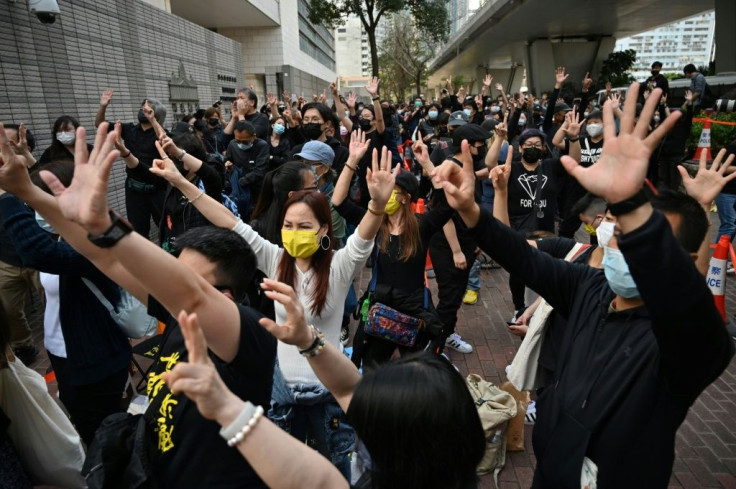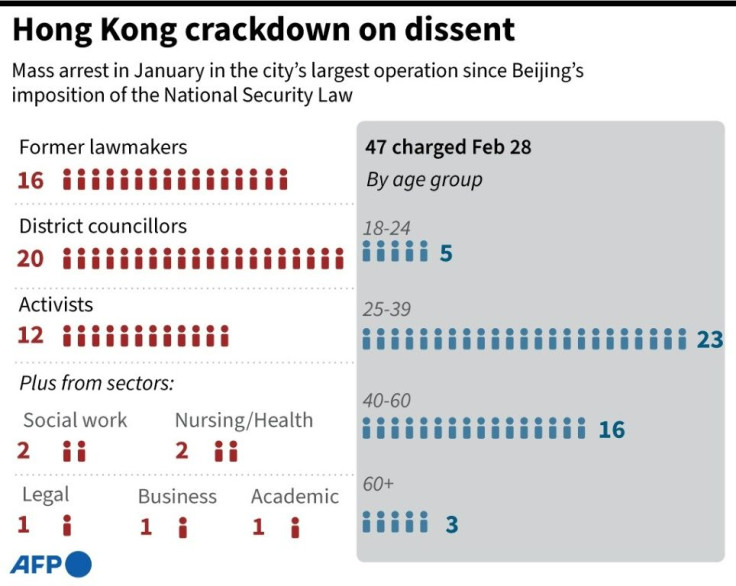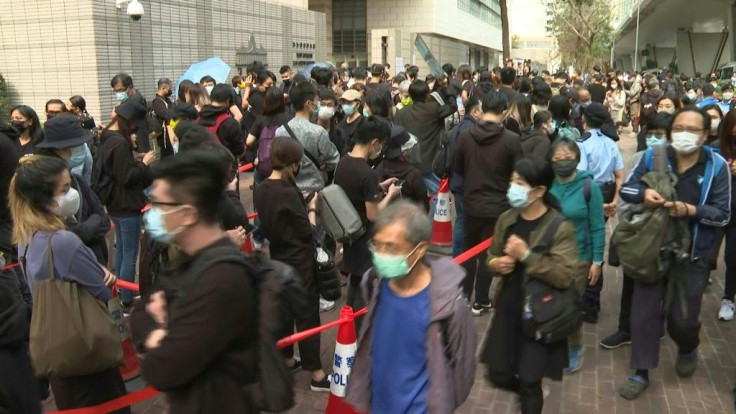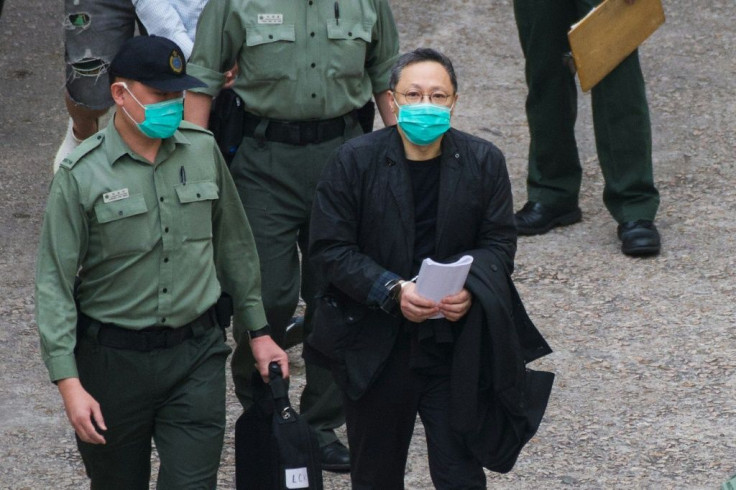Marathon Bail Hearing For Hong Kong Dissidents To Stretch Into Third Day
Dozens of Hong Kong dissidents charged with subversion were returned to custody late Tuesday, after a second straight marathon bail hearing ended without conclusion in a case that has renewed international criticism of Beijing's crackdown on dissent.
Police arrested 47 of the city's best-known dissidents on Sunday for "conspiracy to commit subversion" in the broadest use yet of a sweeping national security law that Beijing imposed on the city last year.
The defendants represent a broad cross-section of Hong Kong's opposition, from veteran former pro-democracy lawmakers to academics, lawyers, social workers and youth activists.

Hundreds of supporters gathered outside a courthouse on Monday for the first post-charge bail hearing, chanting democracy slogans -- a rare resurgence of defiance in a city where protest has been all but outlawed over the last year.
Normally such a bail hearing might take little more than a couple of hours.
But the court struggled to deal with the sheer caseload as well as the legal vagaries of the broadly worded security law, which removes the presumption of bail for non-violent crimes.

The court sat on and off for some 15 hours throughout Monday as the prosecution called for the activists to be held in custody until the next hearing in three months' time while the defence tried to pursue bail.
The first day only ended in the small hours of the morning after one of the defendants, Clarisse Yeung, collapsed and was rushed to hospital. Three other defendants were subsequently taken to hospital in ambulances.
The packed court sat for another full day on Tuesday but that session also ended with an adjournment late in the evening as defence lawyers complained their clients had been unable to shower or change clothes since their arrest.

Beijing has moved to quash dissent in semi-autonomous Hong Kong after huge and sometimes violent pro-democracy demonstrations in 2019.
The security law has been the spear tip of that crackdown, criminalising any act considered to be subversion, secession, terrorism or collusion with foreign forces.

It has radically transformed Hong Kong's relationship with the authoritarian mainland and outlawed much dissent in the once free-wheeling finance hub.
One major area of change is bail.
Under the new law, defendants may only be granted bail if they can persuade a court they no longer pose any kind of national security risk.
Before Monday's hearing, all those charged with a national security crime had been held on remand, despite agreeing to restrictive measures such as house arrest and making no public statements.
The alleged offence for the 47 facing subversion charges was organising an unofficial primary election last summer to choose candidates for the city's legislature, in the hopes that the pro-democracy bloc might take a majority and stymie government legislation.
Chinese and Hong Kong officials said this was an attempt to "overthrow" the city's government, and therefore a threat to national security.
"This trial has nothing to do with law, it merely shows how the Chinese Communist party nakedly abuses its powers and uses the courts to demonstrate that power," Nathan Law, a Hong Kong democracy activist who fled to Britain, said on Facebook Tuesday.
"Political participation should never be a crime," US State Department spokesman Ned Price said.
"This is yet another example of how the national security law is being used to stifle dissent, not to improve security."
China has defended its Hong Kong crackdown, saying it must restore stability after 2019's protests, and ensure only "staunch patriots" are allowed to run Hong Kong.
Hong Kong's government on Tuesday also dismissed criticism of the prosecution as "disrespect of our judicial and legal systems".
China's rubber-stamp national legislature convenes this week for an annual meeting where it is expected to unveil new measures that will further tighten the central government's grip on Hong Kong.
© Copyright AFP 2024. All rights reserved.




















